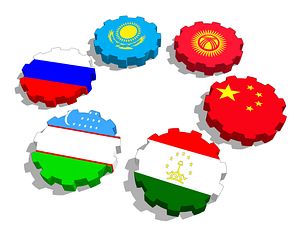Weekend reads (and listens!):
China in Central Asia: There are few topics bigger in the region than the question of China. EurasiaNet is running a five-part series addressing different aspects of Chinese engagement in Central Asia. Raffaello Pantucci tackles the overview, writing that “China’s rise in Central Asia marks one of the most consequential changes in regional geopolitics since the turn of the century.” Aigerim Toleukhanova explains the China-Kazakhstan relationship by starting with an illuminating Kazakh proverb: “To be the captive of the Chinese is a tight noose — with the Russians, it is a wide, open road.” Anna Lelik discusses the Kyrgyz view of China, or rather Bishkek’s courting of Beijing’s investment and latent Sinophobia among the Kyrgyz public.The fourth part is author-less, but excellently picks through the growing relationship between China and Uzbekistan. One interesting note: Uzbek President Islam Karimov made an appearance at Beijing’s marking of the 70th anniversary of the end of World War II in September 2015, but skipped Moscow’s May 9 celebrations. I assume the fifth part of the series will address either Tajikistan or Turkmenistan–countries which each have their own interesting relations with China, though Turkmenistan’s are more consequential.
On the same topic, the Central Asianist Podcast hosted by Nate Schenkkan is back with two episodes. The first brings in RUSI’s Sarah Lain to discuss China’s “One Belt, One Road” initiative in Central Asia and how regional states have responded to Beijing’s plans. The second, with the European Council on Foreign Relations’ (ECFR) Angela Stanzel, takes a closer look at the issue from the perspective of Beijing. Another read worth making time for is Bruno Maçães’s article on Politico discussing the Khorgos dry port on the Kazakh-Chinese border. Perhaps the crucial question is what undergirds this line: “Start with logistics and you will quickly find yourself face-to-face with far more delicate issues.”
A More Perfect Eurasian Union? Last Friday at the St. Petersburg International Economic Forum (SPIEF) Russian President Vladimir Putin said some tremendously hopeful things about the future of the Eurasian Economic Union. Particularly, he commented, “As early as June we, along with our Chinese colleagues, are planning to start official talks on the formation of comprehensive trade and economic partnership in Eurasia with the participation of the European Union states and China.” What exactly that means is up for interpretation–the bulk of the speech was dedicated to Russian economic problems and Moscow’s reform plans.
The Kremlin’s transcript of Putin’s remarks is worth reading, as is this analysis from Ben Aris for bne Intellinews.
Kazakh President Nursultan Nazarbayev shared the stage with Putin (and Italian Prime Minister Matteo Renzi) for a conversation with CNN’s Fareed Zakaria, but his most memorable comment was with regard to the possibility of a woman president in Kazakhstan (a country that has only ever had one president in 25 years). “[I]t is quite possible, especially given that such — there are some ladies who are well prepared for that,” Nazarbayev said. Putin cut in, “I also know some of them, don’t I?” to which Nazarbayev replied, “Given that I have three daughters, I have very special attitude and relations towards ladies.”
So What SCO? Yesterday I discussed the SCO’s ghost-like quality and the members’ use of the forum mostly as a bilateral meeting place. That said, even a day latter there’s little news pointing to the kind of spirit Beijing likes to ascribe to the grouping. India and Pakistan’s accession looks set for 2017 now and the group couldn’t agree on allowing Iran to start down the accession path. As Reuters notes, Russia fully backed Iran’s bid and the countries that objected have not been named, though China is looking like the core suspect.

































